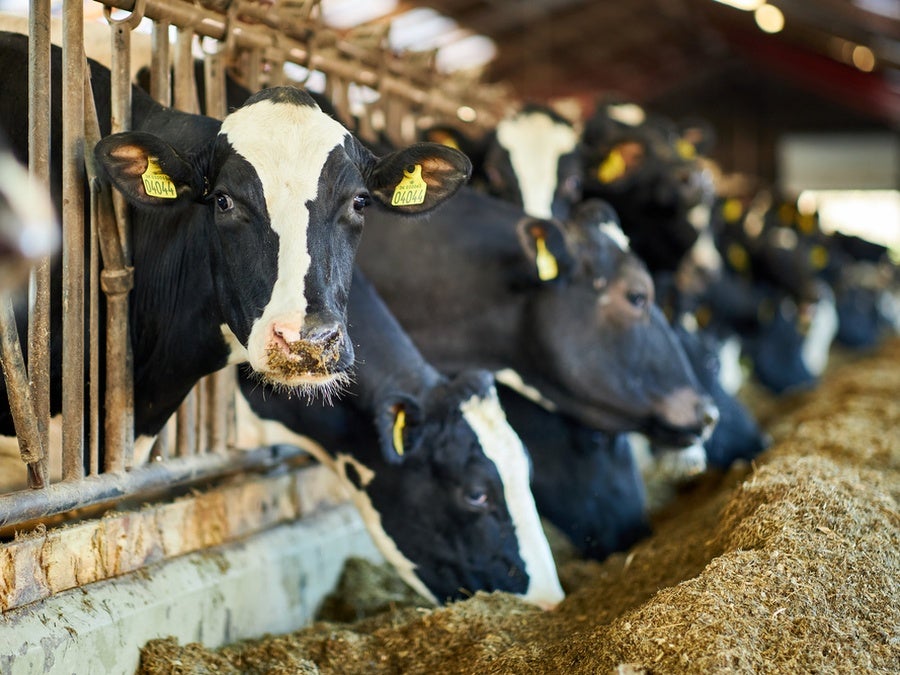
Denmark’s independent advisory council has recommended a farming emissions tax to help the country meet its climate targets.
The Danish Climate Council said introducing a tax of DKK750 (US$107) per tonne would “promote more climate-friendly agricultural production” and have “significant consequences for the agricultural economy – especially for cattle farming”.
It suggested the tax would incentivise farmers to enhance crop production and move away from cattle farming, which emits more greenhouse gasses than other livestock farming, in a report published on Monday (20 February).
“Cattle producers in particular are hit financially by a tax,” the report states. “This is because the cattle producers have a large greenhouse gas emissions per DKK revenue compared to the other operating types.”
It follows the Danish government’s claim in December an emissions tax would be crucial to its target of reducing CO2 levels to 70% of 1990 levels by 2030 – the agricultural and forestry sector’s reduction target is 55-65%, the council said.
“A fee of DKK750 per tonne of CO2e will lead to technically driven reductions in agriculture corresponding to approximately 45% compared to the 1990 level,” it said.
The suggestions have been met with trepidation by the farming industry. Niels Peter Norring, head of climate at the Danish Agriculture & Food Council, warned that such taxes could lead to bankruptcies.
It would “move jobs abroad and prevent Denmark from developing the solutions that can really make a difference to the climate”, he told Reuters.
It follows a similar move by New Zealand last year to “price” agricultural greenhouse gas emissions. Supported by then-Prime Minister Jacinda Ardern, the proposals were aimed at cutting methane and nitrous oxide emissions but were heavily criticised by the country’s farmers’ federation.
In January, French dairy giant Danone said it intends to cut the methane emissions generated by the fresh milk used in its products by 30% by 2030. It expects to remove 1.2 million tonnes of the carbon dioxide equivalent of methane emissions.
And last year Danish-Swedish dairy cooperative Arla Foods launched a sustainability initiative to encourage farmers to lower their carbon footprint by paying them based on their ‘green’ credentials. Arla’s 8,900 European members are judged on a points system, gaining credits for things like fertiliser use, biodiversity work, renewable electricity and the green credentials of their feed.
Just Food has approached Arla and meat cooperative Danish Crown for further comment on the tax proposal.
